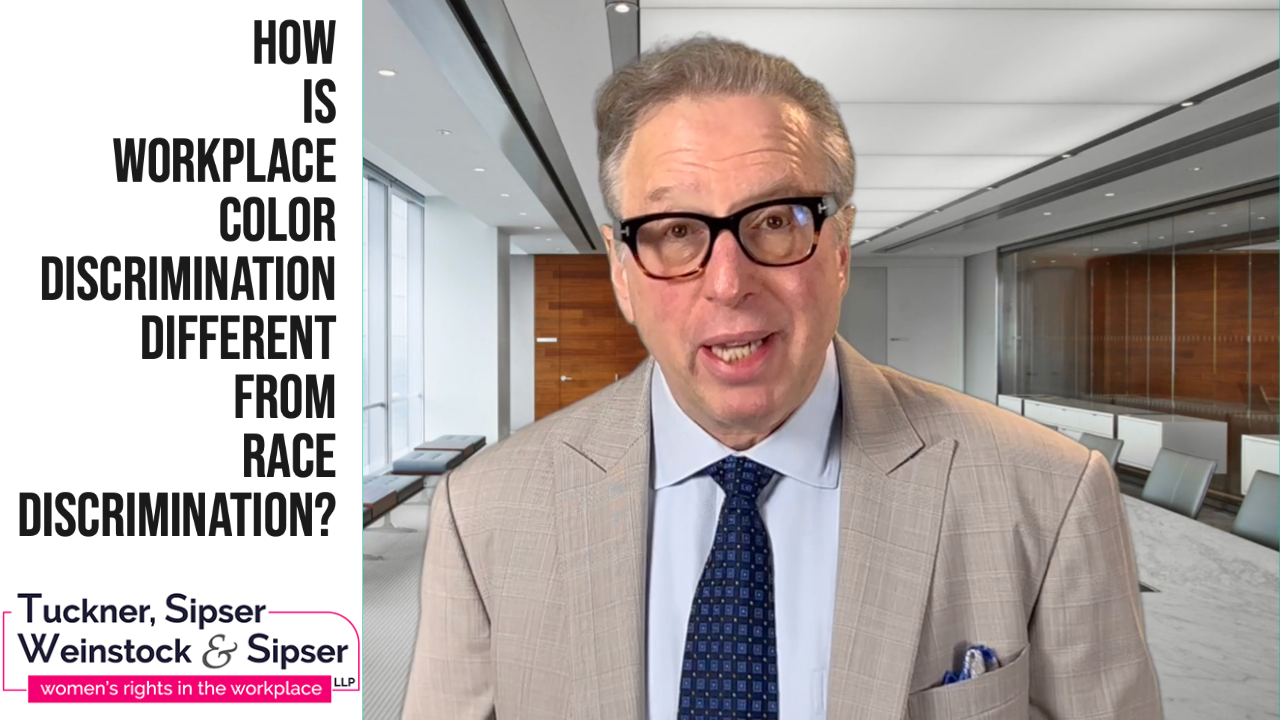Empowering professional women through reproductive stages. Addressing work-life challenges, protections, and guidance.

What is workplace color discrimination and how is it different from race discrimination?
Many individuals conflate #ColorDiscrimination with #RaceDiscrimination, but the two are not the same. New York color and race discrimination lawyer Jack Tuckner explains the difference between race and color discrimination and what your #rights are under the law.
How Real is Racism at the Workplace?
If you’re experiencing discrimination in the workplace, unequal pay due to your race and color, hostility due to your race, color or culture, failure to promote due to race, color, or culture, it's illegal.
Should I Quit My Job If I’m Being Sexually Harassed or Subjected to Discrimination?
Don't quit. If you're dealing with discrimination in the workplace, a hostile work environment, you're being treated differently as a woman, a person of color, because of your age, because your disability, sexual orientation, gender identity, there are a number of protected categories under federal and almost every state's law, that will protect you from being treated differently.
DON'T QUIT YOUR JOB. Call a lawyer first. Find out why.
Quitting your job is just giving up and doing your employer a favor, and most of the time when you quit you’ll also be ineligible to even collect unemployment benefits, never mind being able to take your employer to court, which is near impossible once you’ve voluntarily resigned.
Can my employer discriminate against me based on my hairstyle?
What do you do if you are discriminated against at your workplace?
To treat you equally as a woman, to not permit you to be sexually harassed, to not permit you to be working in an environment that may be hostile to women in general, and you in particular; to ensure that your work environment for the nine months of your pregnancy is flexible, isn’t hostile; that you are able to come back from maternity leave that your employer must provide for you, and they must provide a place for you to express milk after you come back from your maternity leave.
Your Rosa Parks Moment
If you're going to have your Rosa Parks moment, make it count. Make sure you document, document, document the complaint, and all follow up to the boss, to the HR department. Whatever happens, put it in writing. Hold their feet to the fire. Stand up for yourself. The Rosa Parks moment, Circa 2018 in the workplace.
Every case has a Statute of Limitations
Every case has a statute of limitations - the date by which it must be filed, or the chances are lost forever. In discrimination cases, sexual harassment, pregnancy discrimination, retaliation, any kind of employment law case, a charge of discrimination must be filed with the United States Equal Employment Opportunity Commission before you're allowed to file in court, and that charge of discrimination must be filed, within either 180 days of the last discriminatory act or 300 days of the last discriminatory act, depending on the state where you work. So for instance, in New York, that federal filing date with EEOC is 300 days from, if you were fired, that is likely the last discriminatory act.
Can I be fired for something I didn't do?
Only if the real reason is based on the illegal factors embodied in the federal or state discrimination laws, then you got some leverage to hold your employer accountable.
#NYCStripperStrike, too
What comprises Wrongful Termination?
If you feel you are being wrongfully terminated or you are wrongfully discharged, or dismissed, people use that term "wrongful termination" all the time. The thing is, it's not really a thing. It's not a claim. It's not a cause of action - it's more of a term of art that comprises several different notions of illegal or unjust firings from your job.

